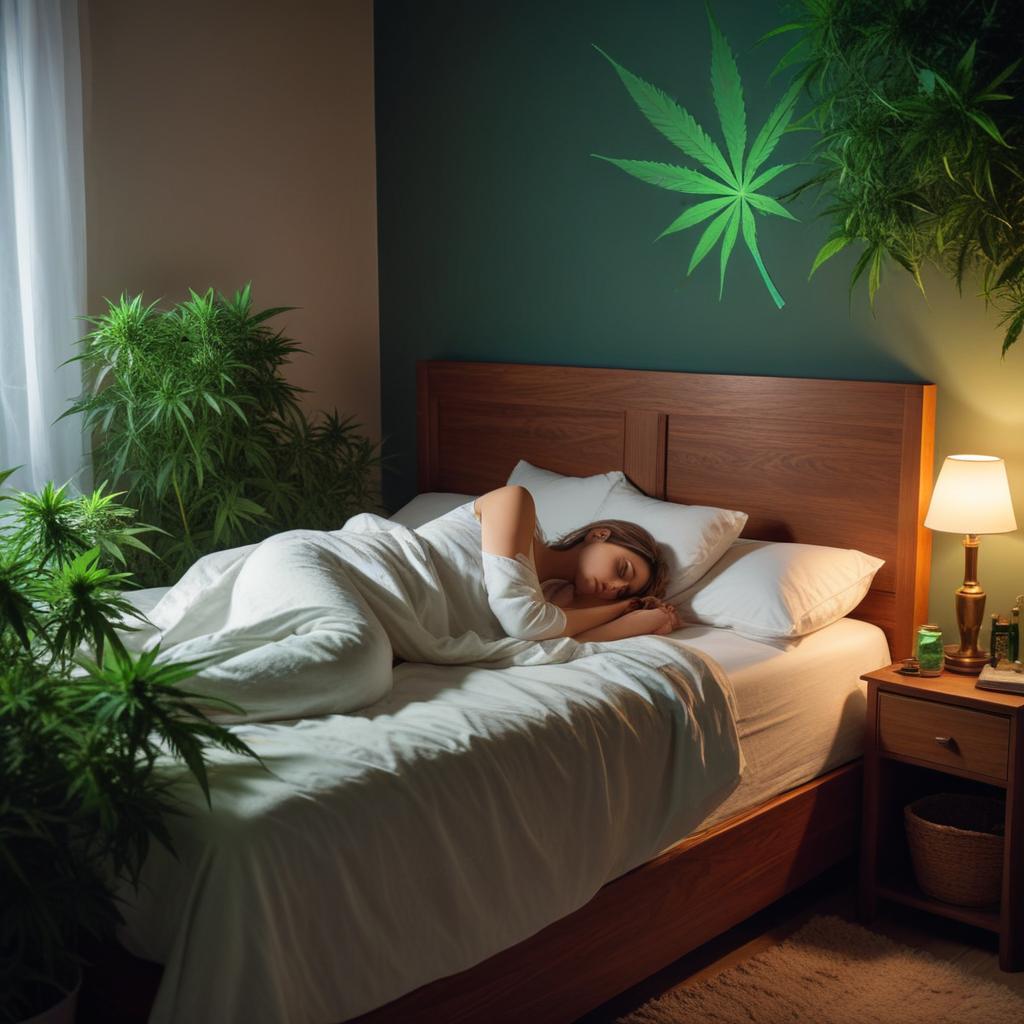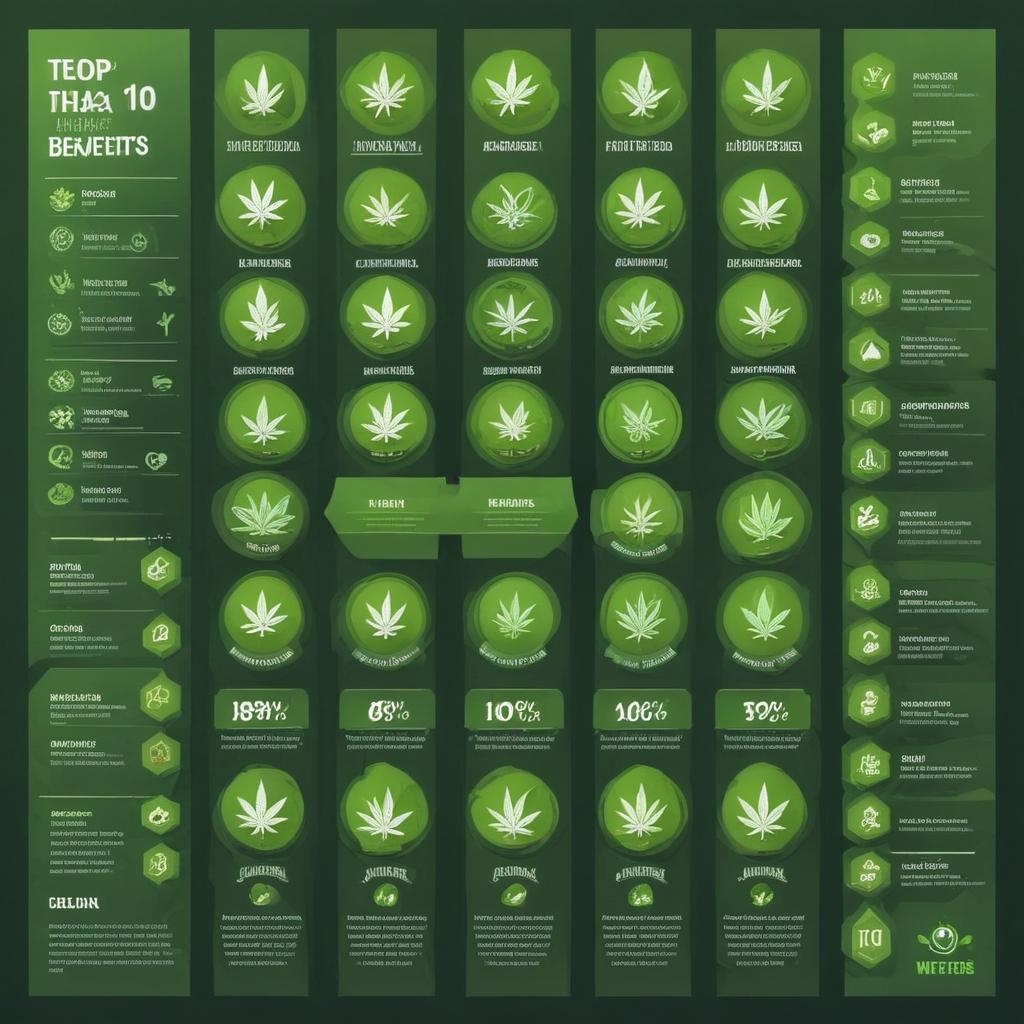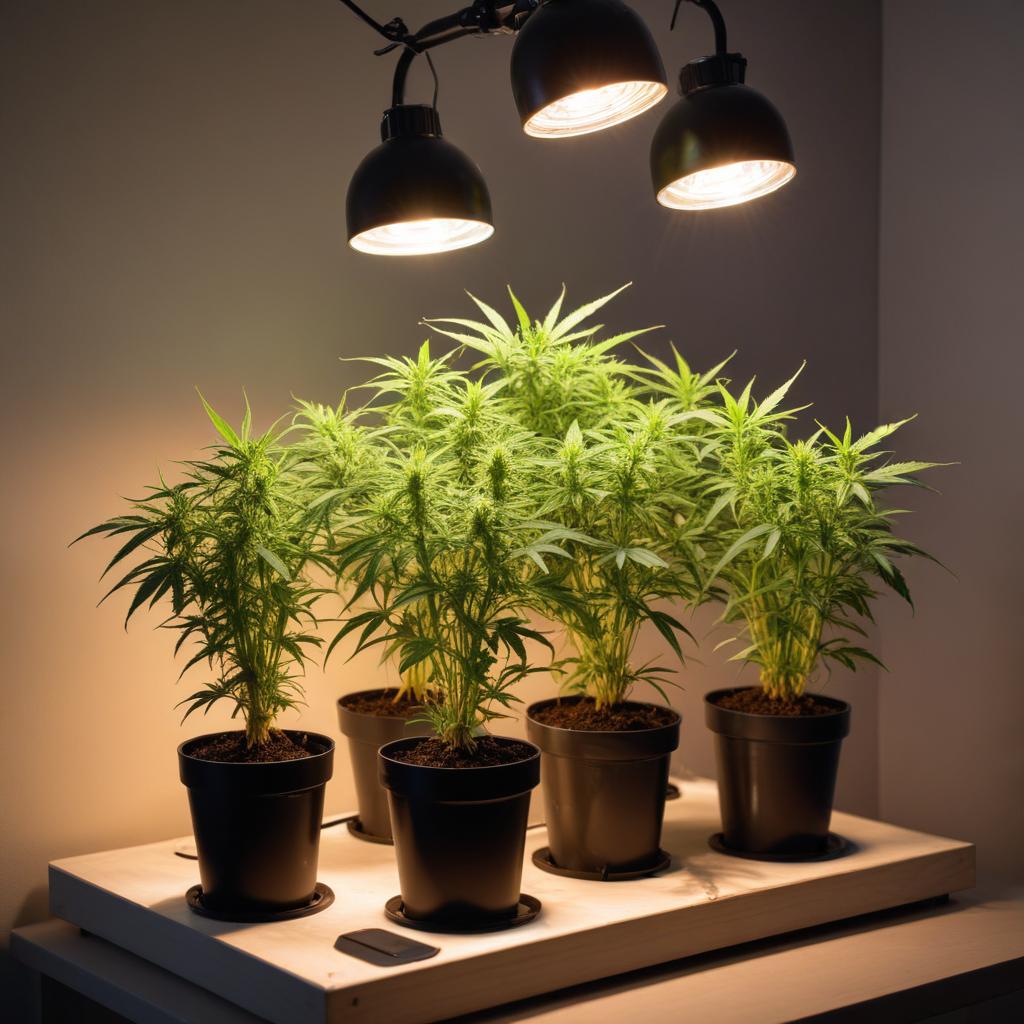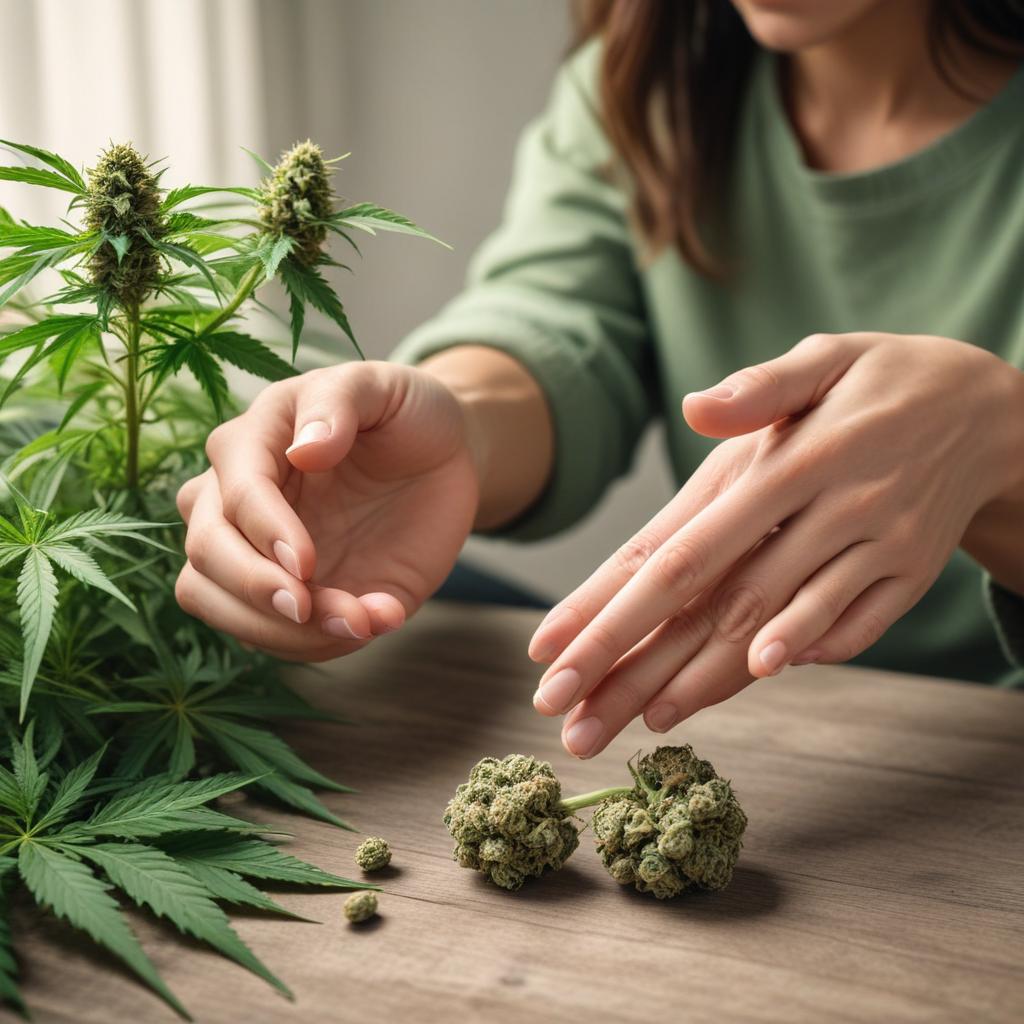Using Cannabis for Better Sleep: A Complete Guide

Sleep problems affect millions worldwide, with insomnia being one of the most common health complaints. While prescription sleep medications exist, they often come with significant side effects including next-day grogginess, dependence, and cognitive impairment. Cannabis offers a natural alternative that many people find effective for improving both sleep quality and duration.
Understanding Sleep and Cannabis
Sleep is essential for physical health, mental wellbeing, and cognitive function. Yet over 70 million Americans suffer from sleep disorders. Insomnia - difficulty falling asleep, staying asleep, or waking too early - is the most common sleep problem. Other issues include sleep apnea, restless leg syndrome, and circadian rhythm disorders.
Cannabis has been used as a sleep aid for thousands of years. Modern research is now validating these traditional uses and helping us understand how cannabinoids affect sleep architecture, sleep-wake cycles, and overall sleep quality.
How Cannabis Affects Sleep
Cannabis affects sleep through multiple mechanisms involving the endocannabinoid system, which plays a crucial role in regulating sleep-wake cycles, circadian rhythms, and sleep architecture.
THC and Sleep
THC is the primary cannabinoid responsible for cannabis's sleep-promoting effects. Research shows that THC can reduce the time it takes to fall asleep (sleep latency) by 30 minutes or more. It works by activating CB1 receptors in the brain that regulate the sleep-wake cycle. THC also increases time spent in deep sleep (slow-wave sleep or Stage 3), which is crucial for physical restoration, immune function, and healing.
However, THC does have one notable effect on sleep architecture: it reduces REM sleep, the stage associated with dreaming. While this might sound concerning, it can actually be beneficial for people with PTSD who experience nightmares. The reduction in REM sleep is also why many cannabis users report fewer dreams. When people stop using cannabis after regular use, they often experience "REM rebound" with vivid, intense dreams as the brain catches up on REM sleep.
CBD and Sleep
CBD's relationship with sleep is more nuanced. At low to moderate doses (25-75mg), CBD is mildly alerting and may actually reduce daytime sleepiness and improve wakefulness. However, at higher doses (160mg+), CBD can promote sleep. CBD appears to help sleep primarily by addressing underlying issues like anxiety, pain, and stress that interfere with sleep.
Unlike THC, CBD doesn't significantly alter sleep architecture or reduce REM sleep. This makes it a good option for people who want sleep support without changing their natural sleep patterns. CBD may also help regulate circadian rhythms, making it useful for shift workers or people with jet lag.
The Entourage Effect for Sleep
While THC and CBD are the stars, other cannabis compounds play supporting roles in sleep. Terpenes - aromatic compounds that give cannabis its distinctive smell - contribute significantly to sedative effects. Myrcene, the most common terpene in cannabis, has strong sedative properties. Linalool (also found in lavender) promotes relaxation and reduces anxiety. Caryophyllene has anti-anxiety effects. Together, these compounds work synergistically to promote sleep.
What Does the Research Say?
Scientific research on cannabis and sleep is growing. A 2021 systematic review examining 31 studies found that cannabis generally improved sleep quality and reduced sleep latency. Another study published in the Journal of Clinical Psychopharmacology found that medical cannabis users reported significant improvements in sleep quality.
Research on specific sleep disorders shows promise. For people with chronic pain, cannabis improved both pain and sleep quality. For PTSD patients, cannabis reduced nightmares and improved sleep duration. For those with sleep apnea, preliminary research suggests THC may reduce apnea episodes, though more study is needed.
Interestingly, the research also shows that cannabis's sleep benefits may diminish with long-term daily use as tolerance develops. Many long-term users report that while cannabis initially helped them sleep, they eventually needed it to sleep normally - a form of dependence. This suggests cannabis may be best used intermittently or in cycles rather than every single night indefinitely.
Choosing the Right Cannabis for Sleep
Indica vs. Sativa
The old saying "indica for in-da-couch" holds some truth when it comes to sleep. Indica-dominant strains tend to be more sedating and body-focused, making them better for nighttime use. They typically have higher myrcene content, which contributes to sedation. Sativa-dominant strains are generally more energizing and less suitable for sleep.
However, modern cannabis genetics are complex, and most strains are hybrids. Rather than relying solely on indica/sativa designation, look at the specific cannabinoid profile and terpene content. Some hybrid strains can be excellent for sleep if they have the right chemical composition.
THC:CBD Ratios
For sleep, most people find THC-dominant products most effective, though the ideal ratio varies:
- High THC (10:1 or higher THC:CBD): Most sedating. Best for severe insomnia or people who haven't found relief with other approaches. May be too intoxicating for some users.
- Balanced (1:1 or 2:1 THC:CBD): Provides sedation with less psychoactivity. CBD tempers THC's effects while still allowing sleep benefits. Good middle ground for many users.
- CBD-Dominant (1:10 or higher CBD:THC): Less sedating but helps with anxiety and pain that interfere with sleep. Best for people who can't or don't want to use THC, or for addressing sleep issues caused by anxiety.
Terpene Profiles
Look for strains or products high in these sedating terpenes:
- Myrcene: The most sedating terpene. Earthy, musky aroma. Found in high levels in many indicas.
- Linalool: Found in lavender. Calming and sleep-promoting. Floral, sweet aroma.
- Terpinolene: Less common but highly sedating. Piney, floral, herbal aroma.
- Caryophyllene: Reduces anxiety and may help with pain that interferes with sleep. Spicy, peppery aroma.
Delivery Methods for Sleep
- Edibles: The most popular choice for sleep. They take 1-2 hours to kick in but provide 6-8 hours of effects, perfect for staying asleep all night. Take 1-2 hours before bed. Start with 2.5-5mg THC and adjust as needed.
- Tinctures: Faster onset (30-45 minutes) and easier to dose precisely. Can be taken sublingually for faster absorption or swallowed like an edible for longer duration. Good for people who need consistent timing.
- Capsules: Similar to edibles but provide very consistent dosing. Convenient and discreet. Take 1.5-2 hours before bed.
- Vaporizing: Not ideal for all-night sleep as effects only last 2-3 hours. However, excellent for falling back asleep if you wake in the middle of the night. Works within minutes.
- Smoking: Similar to vaporizing but less healthy. Some people prefer it for quick effects to fall back asleep after waking.
Dosing for Sleep
Finding your optimal sleep dose requires experimentation. The key is starting low and adjusting gradually:
- Beginners: Start with 2.5-5mg THC 1-2 hours before bed. Many people find this sufficient for better sleep.
- Moderate users: 5-15mg THC may be needed for significant insomnia or if you have higher tolerance.
- Experienced users: Some people need 20mg+ THC, though this is usually due to tolerance buildup.
Timing matters. Edibles and capsules should be taken 1-2 hours before your desired sleep time. Tinctures can be taken 30-60 minutes before bed. Some people find that combining a small dose of THC edible with CBD tincture works best - the CBD reduces any anxiety from THC while both promote sleep through different mechanisms.
Cannabis vs. Traditional Sleep Medications
Cannabis vs. Ambien/Sleeping Pills
Prescription sleep medications like zolpidem (Ambien), eszopiclone (Lunesta), and benzodiazepines work quickly but have significant downsides: next-day impairment, risk of dependence, dangerous interactions with alcohol, potential for sleepwalking or sleep-eating, and severe withdrawal. Cannabis generally has fewer side effects and lower risk of dangerous interactions.
Unlike many sleeping pills, you cannot fatally overdose on cannabis. Cannabis also tends to preserve sleep architecture better than many pharmaceuticals. Many users report waking up feeling more refreshed with cannabis compared to prescription sleep aids.
Cannabis vs. OTC Sleep Aids
Over-the-counter sleep aids typically contain antihistamines (diphenhydramine or doxylamine). While generally safe, they can cause significant grogginess, dry mouth, constipation, and cognitive impairment - especially in older adults. They also lose effectiveness quickly with regular use. Cannabis may be more effective for chronic sleep issues and maintains effectiveness better over time when used properly.
Best Strains for Sleep
While individual experiences vary, these indica-dominant strains are widely regarded as excellent for sleep:
- Granddaddy Purple: Classic indica with high myrcene. Very sedating with sweet, grape-like flavor. Great for insomnia and pain that interferes with sleep.
- Northern Lights: One of the most famous sleep strains. Pure indica with heavy body effects. Helps both falling asleep and staying asleep.
- Purple Kush: Potent indica perfect for stubborn insomnia. Very relaxing with earthy, sweet flavor.
- Bubba Kush: Deeply relaxing with strong sedative effects. High in myrcene and caryophyllene.
- Tahoe OG Kush: Hybrid leaning indica. Powerful relaxation without being overwhelming. Helps quiet racing thoughts.
- God's Gift: Aptly named for insomniacs. Very sedating indica-dominant hybrid.
Creating a Cannabis Sleep Routine
Cannabis works best for sleep when combined with good sleep hygiene practices:
1-2 Hours Before Bed
- Take your cannabis edible or tincture
- Dim the lights and reduce screen time
- Begin winding down with relaxing activities
- Keep bedroom cool (65-68°F is ideal)
30 Minutes Before Bed
- Put away all screens (phones, tablets, computers)
- Practice gentle stretching or meditation
- Read a book or listen to calming music
- As cannabis effects begin, start feeling naturally drowsy
Bedtime
- Go to bed at the same time each night
- Ensure room is dark, quiet, and comfortable
- Use white noise or earplugs if needed
- Practice deep breathing or progressive muscle relaxation
Managing Tolerance
One challenge with using cannabis for sleep is tolerance development. With nightly use, you may find you need increasingly higher doses to get the same sleep benefits. To manage tolerance:
- Take tolerance breaks: Use cannabis for sleep 4-5 nights per week rather than every night. This prevents tolerance buildup.
- Rotate strains: Different strains have different cannabinoid and terpene profiles. Rotating strains may help maintain effectiveness.
- Use the minimum effective dose: Don't take more than you need. Higher doses accelerate tolerance development.
- Combine with CBD: Some research suggests CBD may slow THC tolerance development.
- Address underlying issues: Use cannabis as a tool while working on root causes of sleep problems like stress, poor sleep hygiene, or medical conditions.
Cannabis for Specific Sleep Issues
Trouble Falling Asleep (Sleep Onset Insomnia)
THC is particularly effective for reducing sleep latency. Edibles or tinctures taken 1-2 hours before bed work well. Look for indica strains high in myrcene. If anxiety keeps you awake, consider a balanced THC:CBD product.
Waking During the Night (Sleep Maintenance Insomnia)
For staying asleep all night, long-lasting edibles work best. Take a dose 1-2 hours before bed that will last 6-8 hours. If you wake up, having a vape pen nearby for a small puff can help you fall back asleep quickly without fully waking up.
Pain-Related Sleep Issues
If chronic pain keeps you awake, choose products with balanced THC:CBD (1:1 or 2:1) and high anti-inflammatory terpenes like caryophyllene. Topicals applied to painful areas before bed can help without causing grogginess. Learn more about cannabis for pain management.
Anxiety-Related Sleep Issues
If racing thoughts and worry prevent sleep, CBD-rich products (1:2 or 1:3 THC:CBD) work well. The CBD reduces anxiety while THC provides sedation. Too much THC can sometimes increase anxiety in sensitive individuals, so balanced ratios are safer.
PTSD and Nightmares
THC's REM-suppressing effects can be highly beneficial for PTSD-related nightmares. Many veterans and trauma survivors report that cannabis allows them to sleep through the night without disturbing dreams for the first time in years.
Potential Downsides and Considerations
Next-Day Effects
Some people experience grogginess the morning after using cannabis for sleep, sometimes called a "weed hangover." This is more common with high doses or edibles taken too late. To minimize this, take your dose earlier (2-3 hours before bed rather than right before), use lower doses, and ensure 7-8 hours of sleep.
Tolerance and Dependence
While cannabis is far less problematic than prescription sleep meds, psychological dependence can develop. Some long-term users find they have trouble sleeping without cannabis. To prevent this, use cannabis as a tool while addressing underlying sleep issues, take regular breaks, and practice good sleep hygiene even when using cannabis.
REM Sleep Reduction
Regular THC use reduces REM sleep, which is important for emotional processing and memory consolidation. The long-term effects of reduced REM sleep aren't fully understood. For occasional use this isn't concerning, but daily long-term users should be aware. Taking tolerance breaks allows REM sleep to normalize.
Tips for Success
- Keep a sleep journal tracking doses, timing, strain used, and sleep quality. This helps you find your optimal approach.
- Maintain consistent sleep and wake times, even on weekends.
- Use cannabis in conjunction with good sleep hygiene - dark room, cool temperature, no screens before bed.
- Address underlying issues like sleep apnea, chronic pain, or anxiety disorders with appropriate medical treatment.
- Consider professional help if sleep problems persist despite trying cannabis and good sleep practices.
- Don't drive or operate machinery if you wake during the night after using cannabis.
Conclusion
Cannabis can be a highly effective natural sleep aid for many people. Its ability to reduce sleep latency, increase deep sleep, and address underlying issues like pain and anxiety makes it a valuable tool for insomnia sufferers. While it's not without potential downsides like tolerance development and REM sleep reduction, most users find these trade-offs acceptable given the sleep improvements they experience.
If you're struggling with sleep, cannabis may be worth exploring - especially if you've tried other approaches without success. Start with low doses, choose appropriate strains or products, time your doses properly, and combine cannabis with good sleep hygiene practices. For many insomnia sufferers, cannabis has provided the restful sleep they've been desperately seeking.
About the Author
Lisa Thompson is a contributing writer for Cannabis Health Home, specializing in sleep & wellness. With years of experience in cannabis research and education, they provide evidence-based insights to help our readers make informed decisions about their wellness journey.


